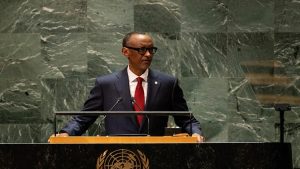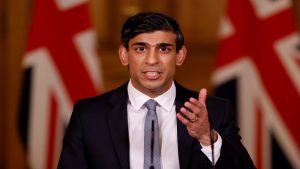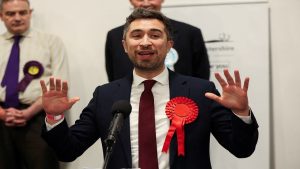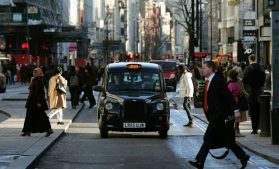Britain is unlikely to lift its stringent lockdown rules until the end of May, a leading government adviser said on Saturday, warning that the spread of coronavirus must first slow and intense testing be introduced.
The government has put Britain into a widespread shutdown, closing pubs, restaurants and nearly all shops, while ordering people to stay home unless absolutely essential to venture out.
The order is designed to curb the spread of COVID-19 in the country, which has almost 40 000 confirmed cases and 3605 deaths, but some experts have started to question whether the shuttering of the economy will cost more lives in the long run.
“We want to move to a situation where at least by the end of May we’re able to substitute some less intensive measures, more based on technology and testing, for the complete lockdown we have now,” Neil Ferguson, a leading professor of mathematical biology at Imperial College London, told BBC Radio.
Britain initially took a restrained approach to the outbreak but Prime Minister Boris Johnson changed tack and imposed stringent social-distancing measures after Ferguson’s modeling showed a quarter of a million people in the country could die.
The response has since been hampered by a lack of ventilators and an inability to carry out mass testing to determine whether the public, and particularly health workers, have built up an immunity.
A second senior government adviser, the chief pandemic modeler Graham Medley, said he feared Britain had painted itself into a corner, with no clear exit from a strategy that would damage the economic and mental well-being of many people.
Almost one million people have applied for welfare benefits in just two weeks in Britain, according to official data that shows the economy is set for a depression that could be worse than the slump in the 1930s.
“If we carry on with lockdown it buys us more time, we can get more thought put into it, but it doesn’t resolve anything – it’s a placeholder,” Medley told the Times newspaper.
“We’ve kind of painted ourselves into a corner, because then the question will be, what do we do now? In broad terms are we going to continue to harm children to protect vulnerable people, or not?”
Health minister Matt Hancock has set a goal of 100,000 tests per day by the end of this month, a tenfold increase that industry leaders have questioned due to shortages of specialist chemicals and testing kits. It is also considering immunity certificates.
Medley said the antibody tests could help but were not working so far.
Separately the government said it would free prisoners who were deemed to be low risk and were within weeks of release.
IMF warns that the World’s economic woes will worsen
The coronavirus pandemic has brought the global economy to a standstill and plunged the world into a recession that will be “way worse” than the global financial crisis a decade ago, the head of the International Monetary Fund said on Friday, calling it “humanity’s darkest hour.”
The IMF’s managing director, Kristalina Georgieva, speaking at a rare joint news conference with the leader of the World Health Organization (WHO), called on advanced economies to step up their efforts to help emerging markets and developing countries survive the economic and health impact of the pandemic.
This is, in my lifetime, humanity’s darkest hour and a big threat to the whole world. What is required from us is to stand tall, be united and protect the most vulnerable of our fellow citizens on this planet. https://t.co/HNayWDUpXP #COVID19 pic.twitter.com/Hf6EmbJ510
— Kristalina Georgieva (@KGeorgieva) April 4, 2020
“This is a crisis like no other,” she told some 400 reporters on a video conference call. “We have witnessed the world economy coming to a standstill. We are now in recession. It is way worse than the global financial crisis” of 2008-2009.
World Bank President David Malpass echoed her outlook in a post on LinkedIn, writing, “Beyond the health impacts from the COVID-19 pandemic, we are expecting a major global recession.”
The @WorldBank Group is working to strengthen developing nations’ ability to respond to the #COVID19 pandemic & shorten the time to economic and social recovery.
On @LinkedIn, I have summarized some of our activities over the last week:https://t.co/A3x5eS86lj
— David Malpass (@DavidMalpassWBG) April 3, 2020
More than 1 million people worldwide have been infected with COVID-19, the disease caused by the virus, and more than 53 000 have died, a Reuters tally showed on Friday.
Georgieva said the IMF was working with the World Bank and WHO to advance their call for China and other official bilateral creditors to suspend debt collections from the poorest countries for at least a year until the pandemic subsides.
She said China had engaged “constructively” on the issue, and the IMF would work on a specific proposal in coming weeks with the Paris Club of creditor nations, the Group of 20 major economies and the World Bank for review at the annual Spring Meetings, which will be held online in about two weeks.
In his posting, Malpass said a debt standstill could begin on May 1, providing added liquidity for the poorest countries as they battle the disease. During the suspension period, he said, the World Bank and the IMF could evaluate the sustainability of those countries’ debt and the possible need for a debt reduction by official creditors and commercial creditors.
Emerging markets and developing economies have been hard hit by the crisis, Georgieva said, noting that nearly $90 billion in investments had already flowed out of emerging markets, far more than during the financial crisis. Some countries are also suffering from sharp drops in commodity prices.
More than 90 countries – nearly half the IMF’s 189 members -have asked for emergency funding from the IMF to respond to the pandemic, she said.
The IMF and WHO have called for emergency aid to be used mainly to strengthen health systems, pay doctors and nurses, and buy protective gear.
Georgieva said the IMF stood ready to use as much of its “war chest” of $1 trillion in financing capability as needed.
The IMF has begun disbursing funds to requesting countries, including Rwanda, with requests from two additional African nations to be reviewed on Friday, she said. “This is, in my lifetime, humanity’s darkest hour – a big threat to the whole world – and it requires from us to stand tall, be united, and protect the most vulnerable of our fellow citizens,” she said.
Below is a Live Tracking of the cases, death toll and other information, updated daily:






